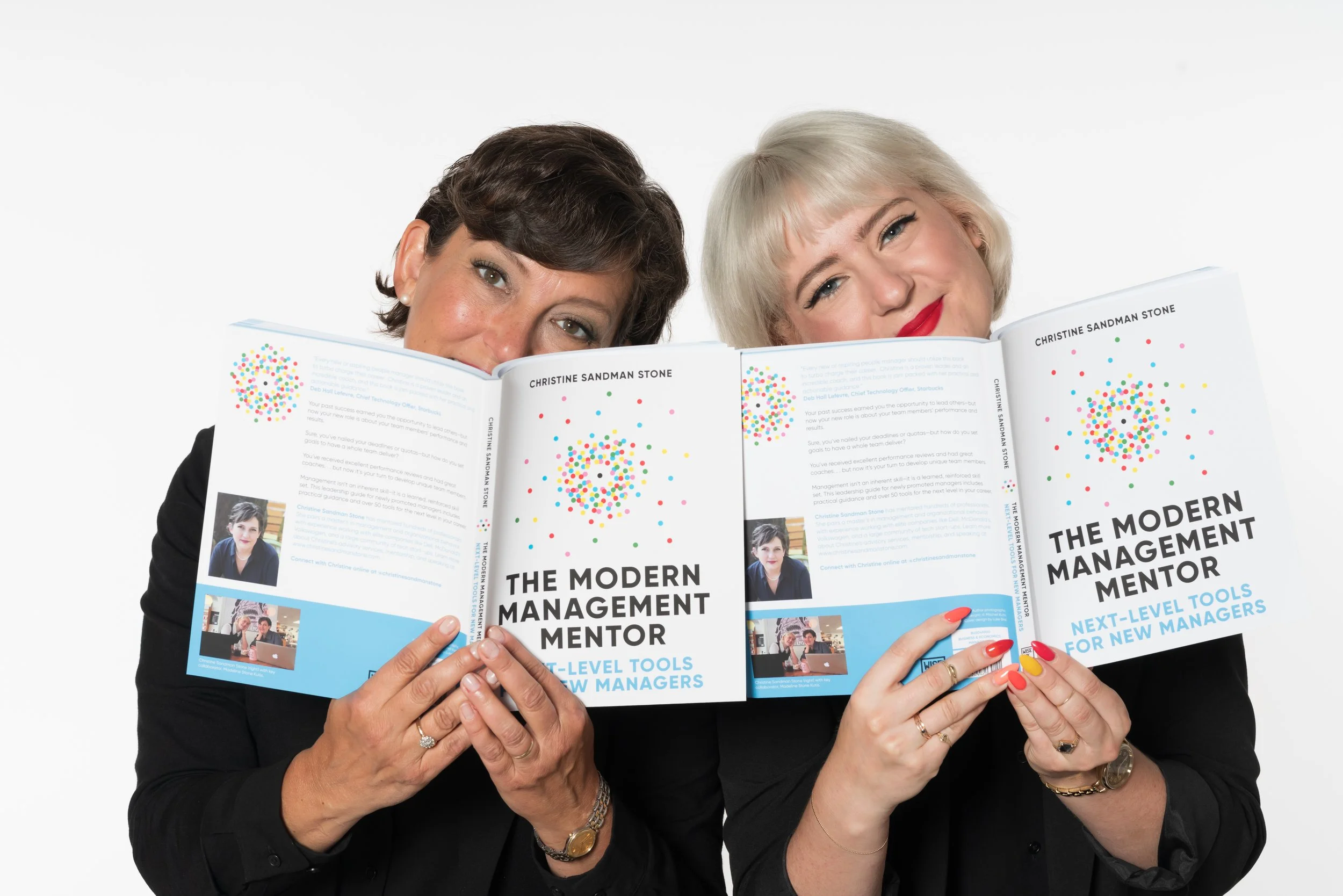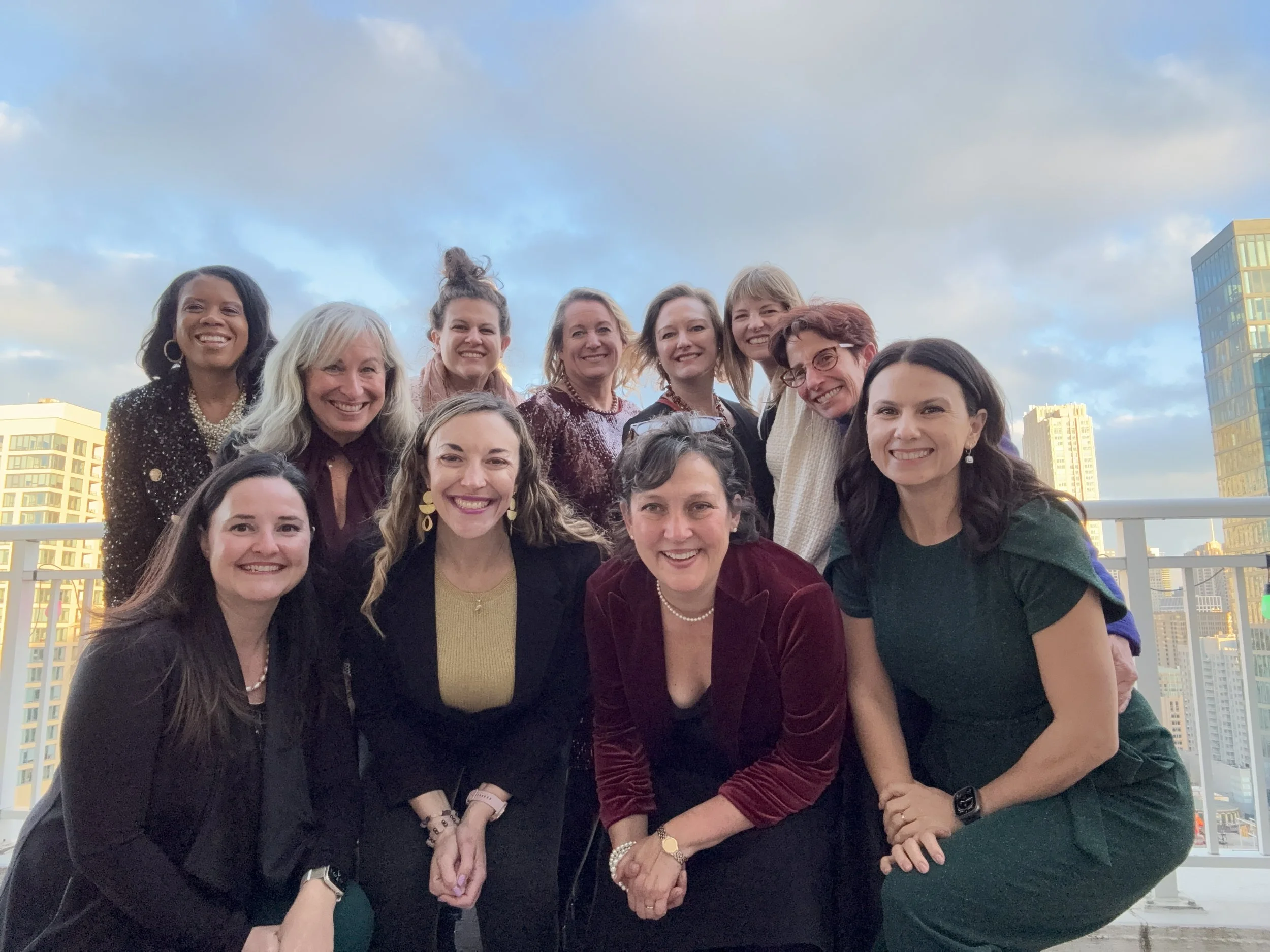No-Fail Career Accelerators – Sponsors & Mentors
By Christine Sandman Stone, Deliver at Scale
Hands down, the no-fail-career-accelerator is having both sponsors and mentors.
The most effective tactics around mentors and sponsors are here: what mentors and sponsors are, how to find them and how to get great results – whether you are seeking them, or you yourself are a sponsor or mentor. In my years in Fortune 500s and startups – this insight was the best career advice I ever got, and I wish I had learned it earlier. It still influences the work and talks I give now.
SPONSORS VERSUS MENTORS, AND WHY IT MATTERS
Carla Harris, an executive at Morgan Stanley gave the best explanation I have ever heard on mentors and sponsors. I am going to summarize her content and add some insights here:
Sponsors are the most important people in our career. They are the ones in the conference room (real or virtual) where decisions are made about us. Do we get a promotion? Do we get assigned a critical initiative? Do we get a higher bonus? Sponsors carry our flag, tell our story, and most importantly – they can impact our wealth.
Mentors are the people we take problems, frustrations and doubts to and we ALL have those. Because mentors help us solve things, Carla says we should tell them the Good, the Bad and the Ugly.
Sponsors cannot also be mentors. In order for them to advocate for us – they must have clear confidence that we are ready so they can pitch us for that promotion, bonus or initiative.
Because of that, we can only tell sponsors the Good…. the Good… and the Good.
Darn! The first time I heard this, I realized how I had been messing up. I thought my managers were my mentors first. I took challenges, concerns and doubts to them and I realized those conversations contributed to delays in promotions for me that came later than they would have otherwise. The managers waited until they thought I was ready. Truthfully, I was ready before, I was just grouchy. ☺
THREE TACTICS FOR YOU, NOW
1) Find a sponsor/s, fast.
Look around your organization. Who can advocate for you to get paid more and get promoted?
First person? Your manager. Start making sure your relationship with them is strong and that they know stories about the great things you do. Don’t take problems to them unless you have ideas about solutions. Build their confidence in you so they can back you.
Second? Find other sponsors. Consider what people (at your manager’s level and above) you work with who are big fans AND will be in your company’s talent round table meetings when promotions are discussed? Make sure they know your stories of success too.
2) Do not ask someone to be your mentor. ☺ Ask for Coaching Coffees instead.
When you ask someone, “Will you be my mentor?” – this is what they think, in order of response:
Oh sh*t.
Does this person think I will get them a job?
Does the person plan on showing up and asking “so, tell me about your career”
Does this person want to put an hour on my already full calendar? Oh no, what if they want a recurring meeting with no expiration?
INSTEAD, say “I have an interview coming up for a VP role, would you be able to give me some insight on how to prep?” or “I am having trouble with this new coding language – can you answer a few questions about where I am stuck?”
Ask for a ‘coaching coffee’ to talk about a specific issue. No one will turn down a request for help on a clearly defined problem.
3) Find Mentors.
Beyond coaching coffees in your organization, seek mentors outside of your team.
After wasting hundreds of thousands of dollars on software platforms for matching and coordinating mentor matches and countless hours from Talent teams, companies I work with are creating problem-based programs to help staff find problem-solving mentors outside of their immediate teams.
When I redesigned the PWCC mentoring program, here is what we changed:
Three months to focus on a problem and get a solution instead of a year-long connection.
Focus on a specific problem (“I need to make my decks board-ready” or “I need help to prepare for a promotion interview”) instead of a sophisticated ask (like “help me build my leadership presence”).
Train mentees instead of training mentors. When mentors only have to show up and be smart, they are much more inclined to volunteer. The mentee preps for the meeting and has a vested interest in setting the stage for a great conversation.
The beautiful part of this design is that a person can have multiple mentors in a year and solve multiple problems. Mentors are willing to support it because all they have to do is join a virtual call for thirty to forty-five minutes and be brilliant and supportive.
If you can’t coordinate a mentor inside of your organization, especially if you are senior or experienced, seek a mentor outside of your organization.
My advisory work is focused on results – I collaborate with leaders and teams who need to get a different outcome. If there is such a thing as an Outcome Mentor, that is what I do.
The strategy of telling someone outside your organization the good, bad and ugly works even at the most senior levels. Options for this include:
an advocate from outside of your team or division
an external perspective from outside of your company
an honest voice who can tell you when you could make a change or do something different (and better) AND an honest voice that can tell you “Hey, this is NOT a misread on your part. You are reading this situation just right.”
With this external mentor as a support system, you can go faster, harder, and with more efficiency towards your goals.
SO GET OUT THERE.
First, find your sponsors. Make a game plan to ensure your sponsor knows your stories and can tell your story when you are not in the room.
Then, do not ask for mentors in your company – ask for coaching coffees about specific situations.
Consider good resources to help you solve your problems (mentors and hired advisors). Organizations like PWCC and others give great options for external counsel. Advisory groups like Deliver at Scale and other brilliant peers can help at a higher level.
You’ve Got This.
About Christine:
Christine can change the trajectory of a team, a leader or an audience in an hour.
She is an expert in modern management and career progression. She pairs a career leading teams in diverse industries for large companies (Dell, McDonalds, Volkswagen, Groupon) and start-ups/small orgs, with graduate work in Organizational Behavior. She builds solutions for delivery and scaling challenges, and builds strong teams and delivers business results.
In addition to her advisory work, she is an award-winning content creator, sought after speaker and workshop designer specialist in Deliver At Scale.



